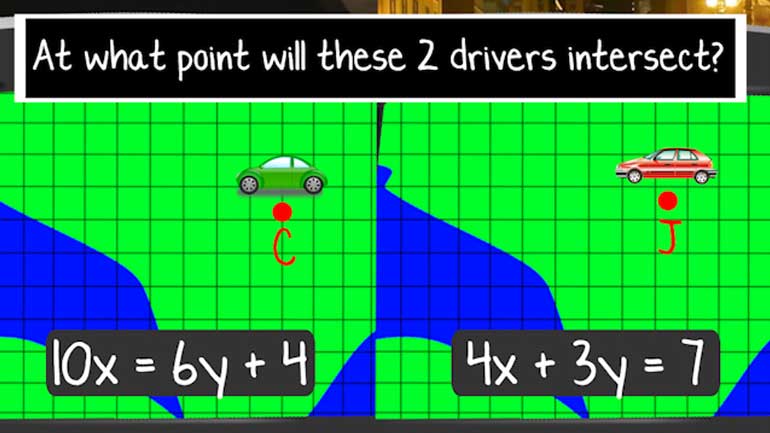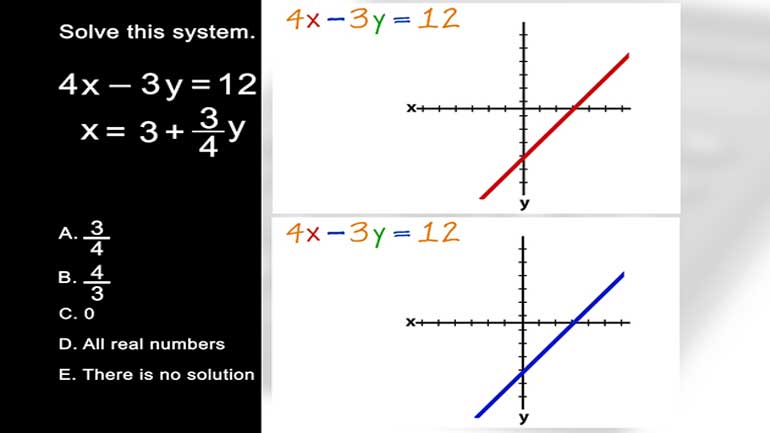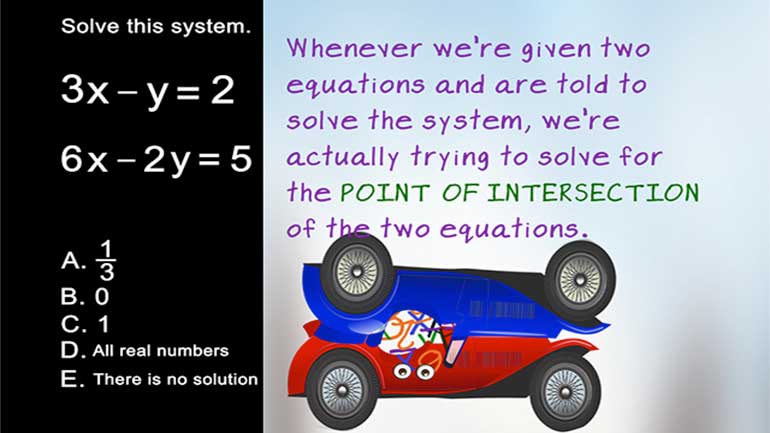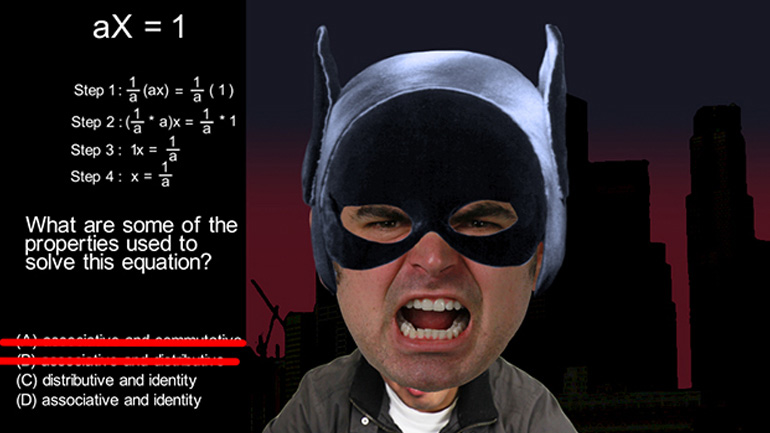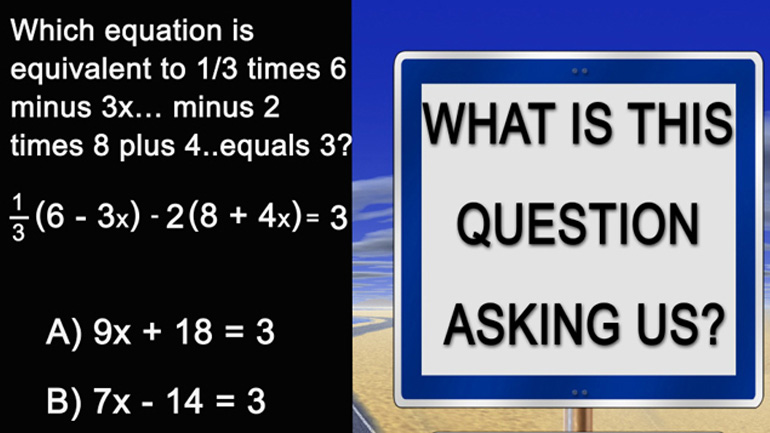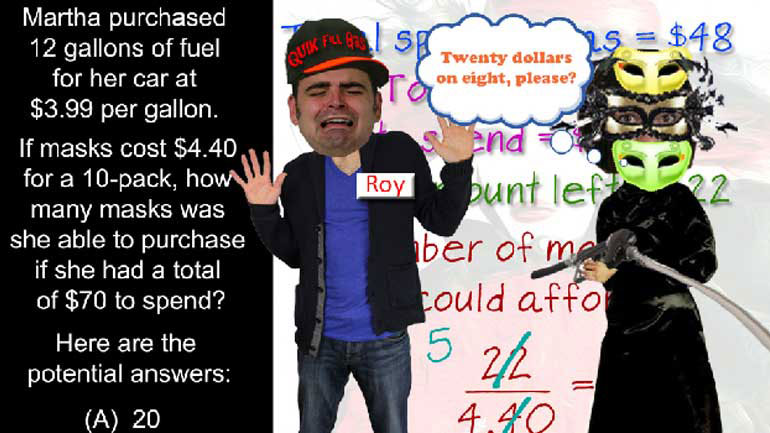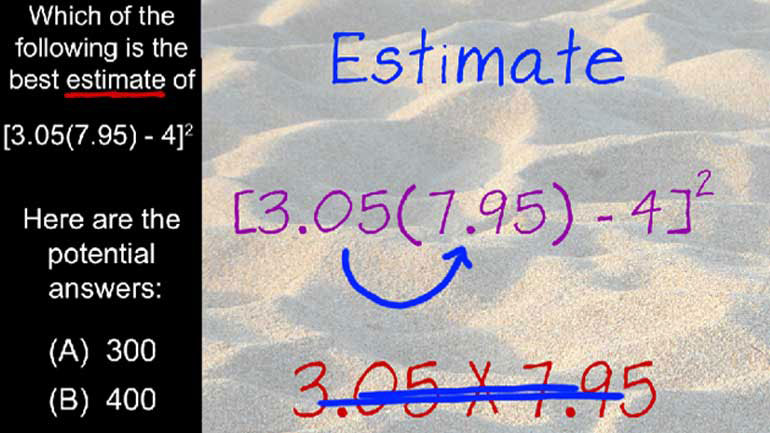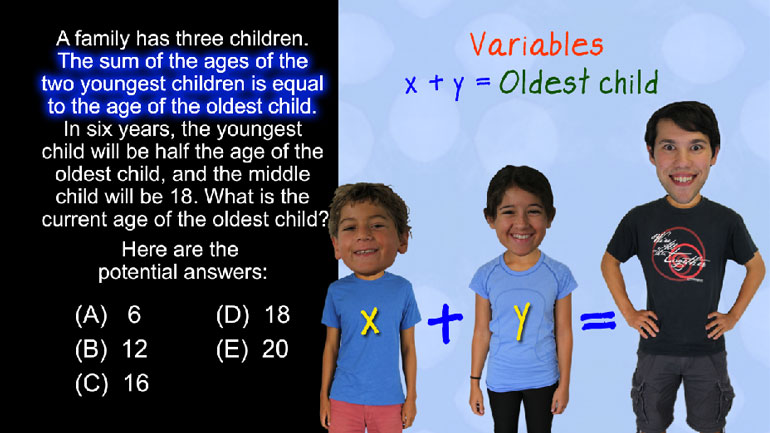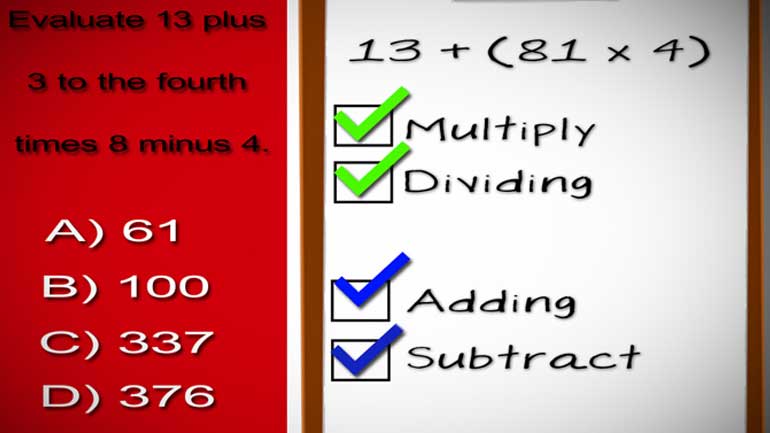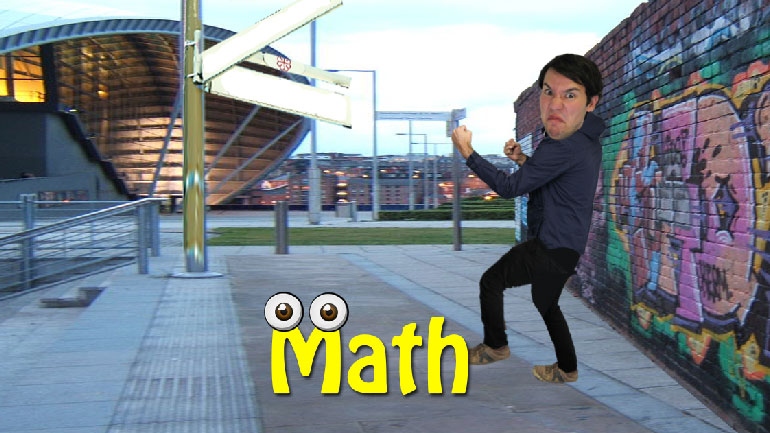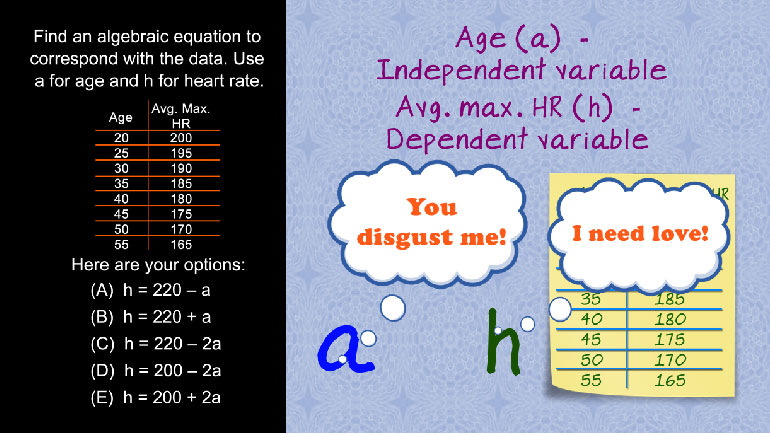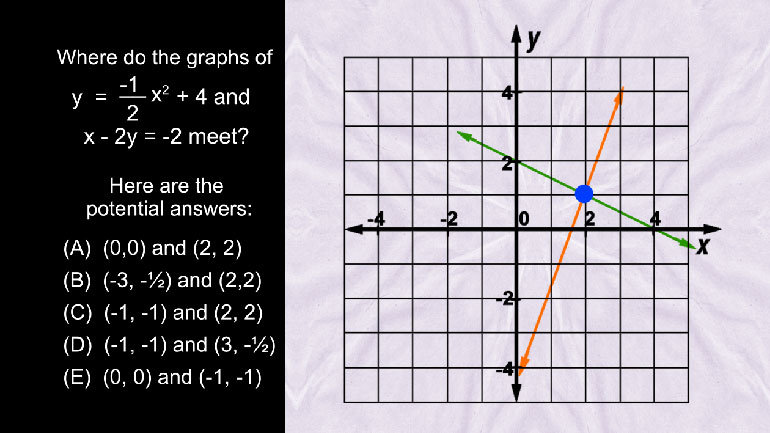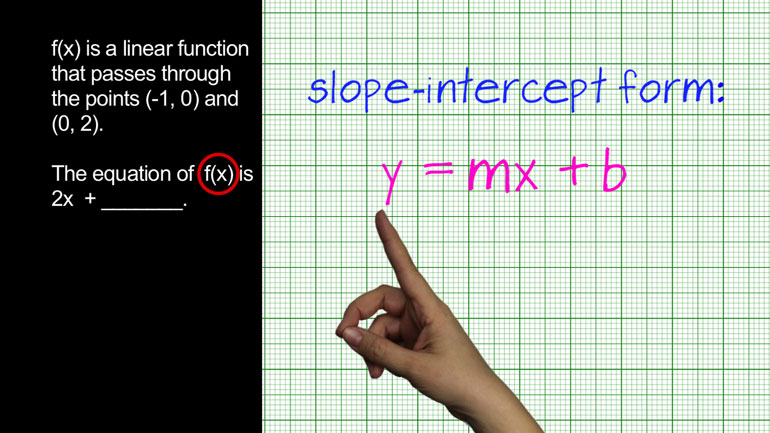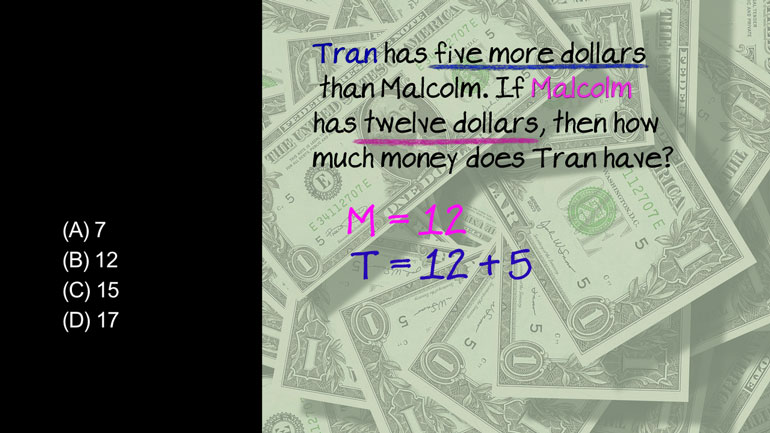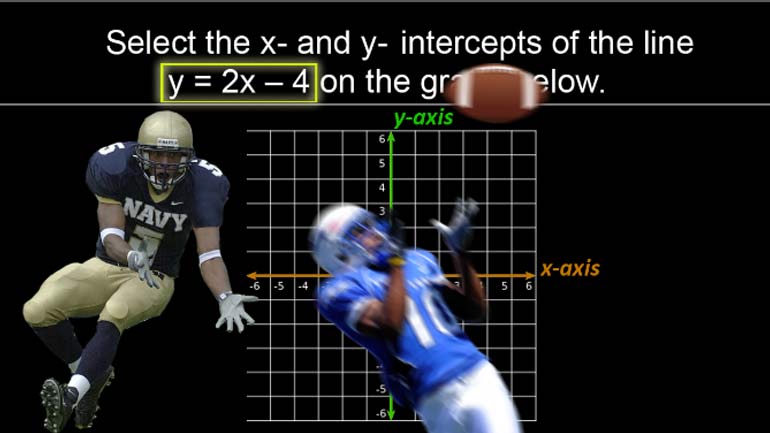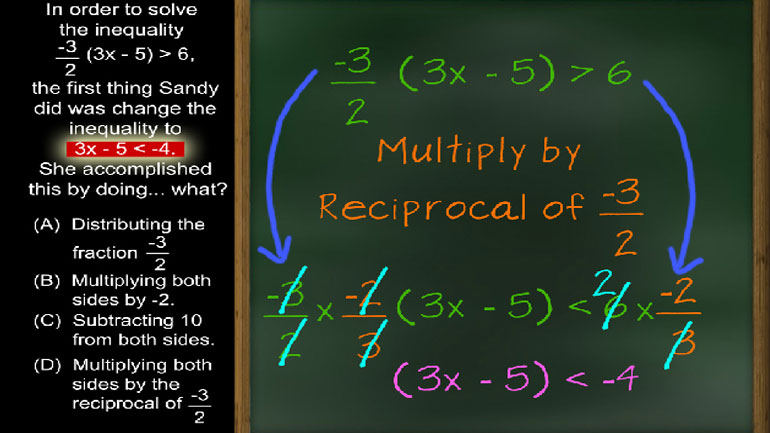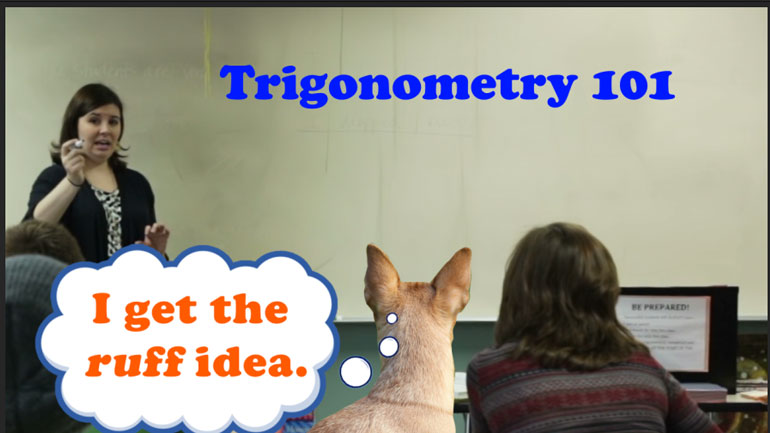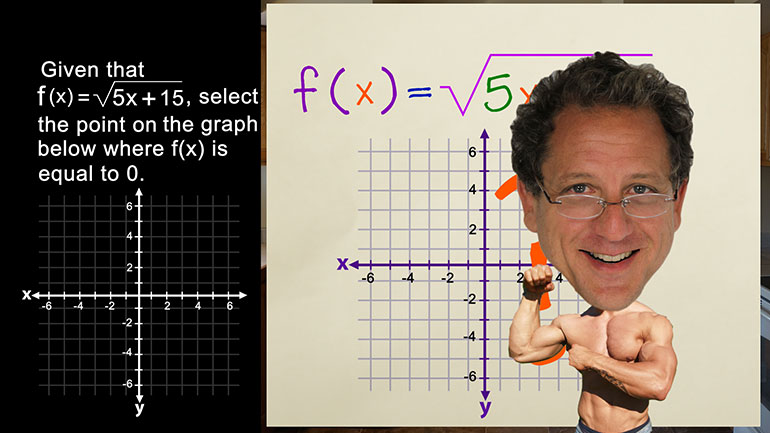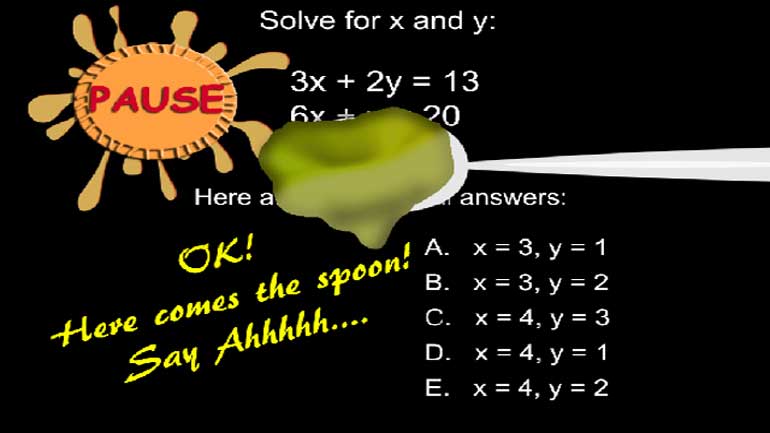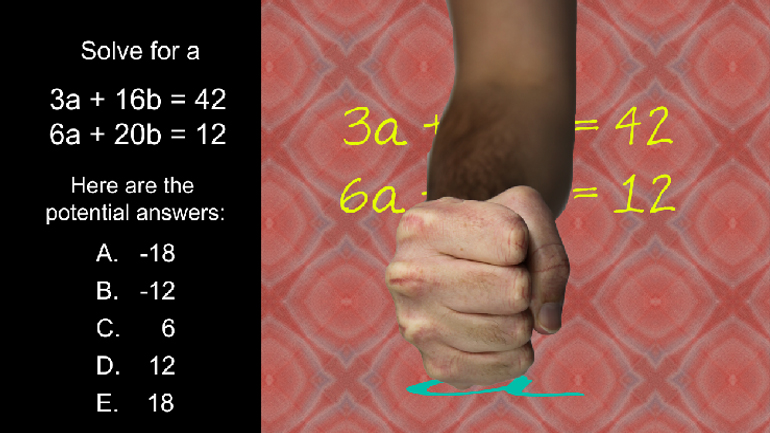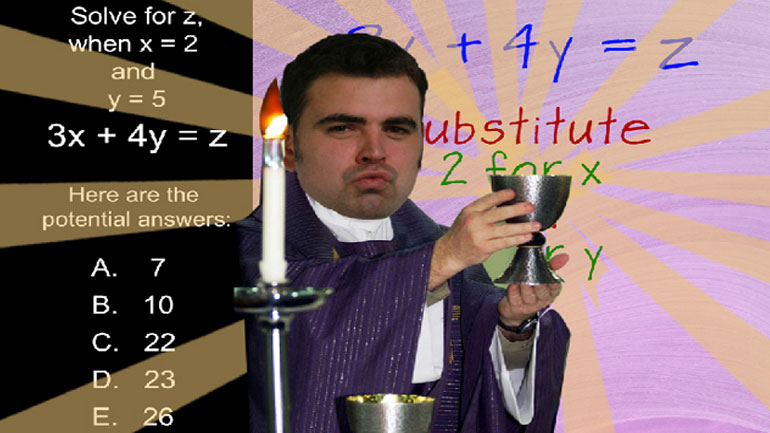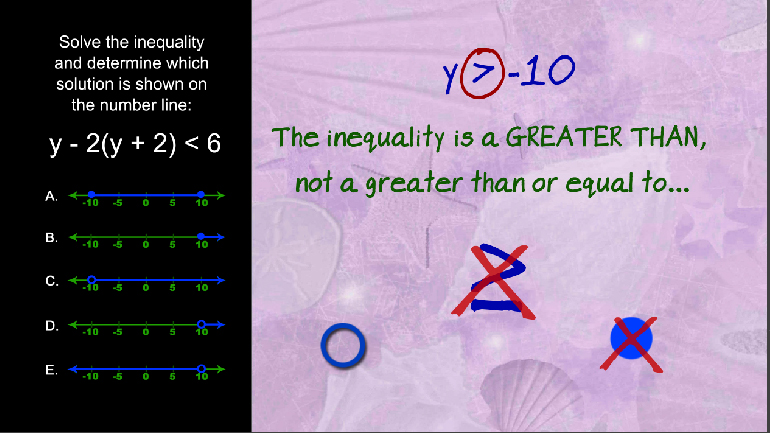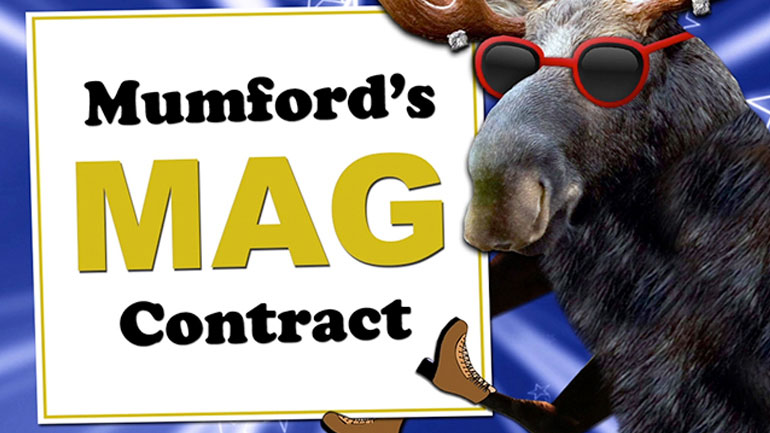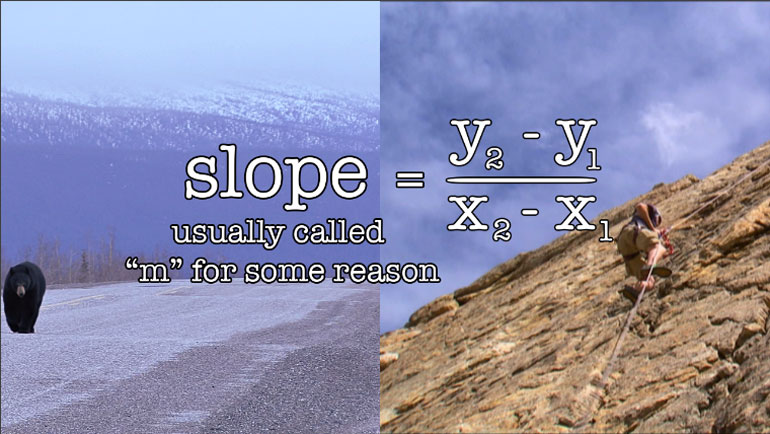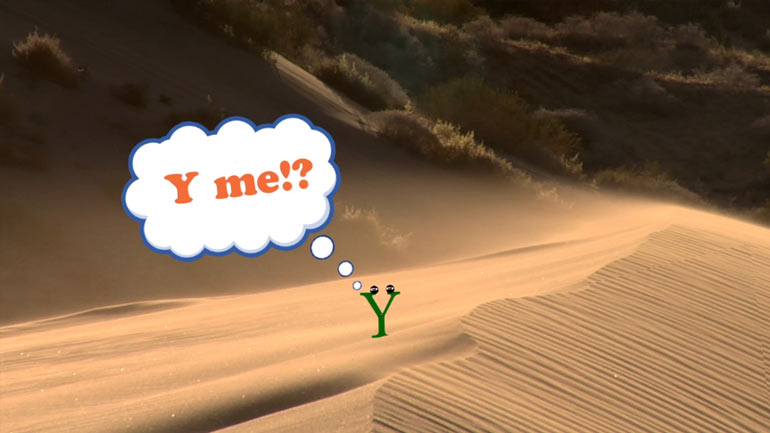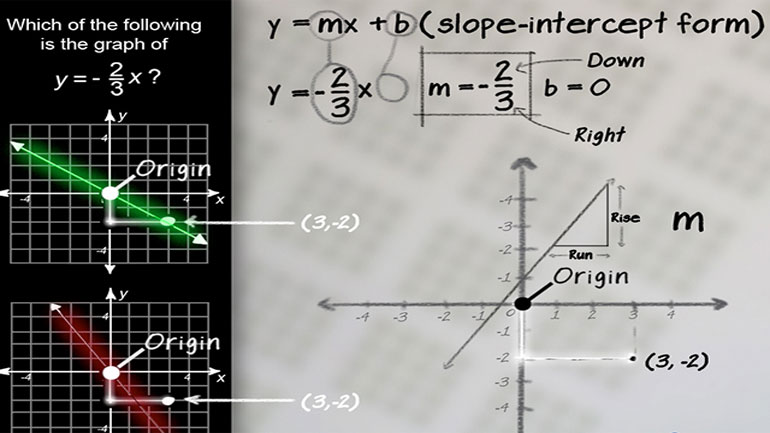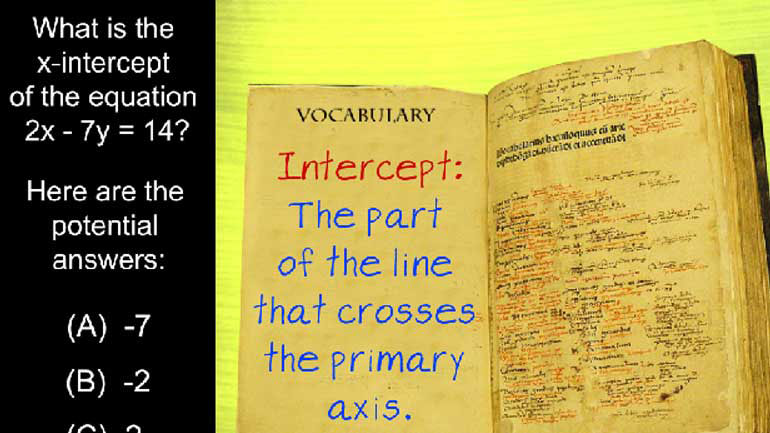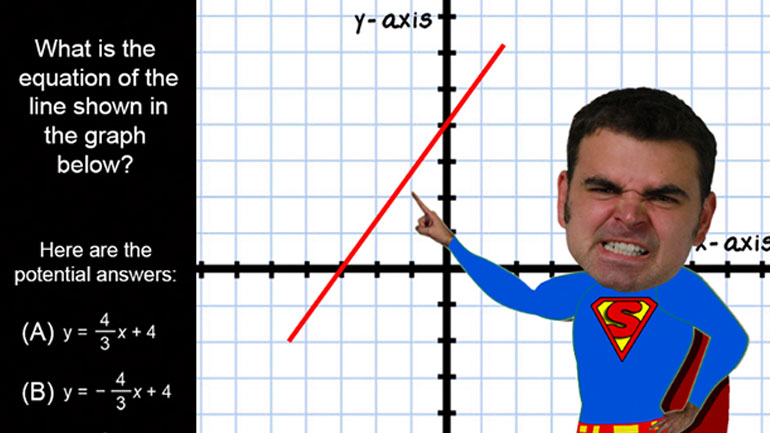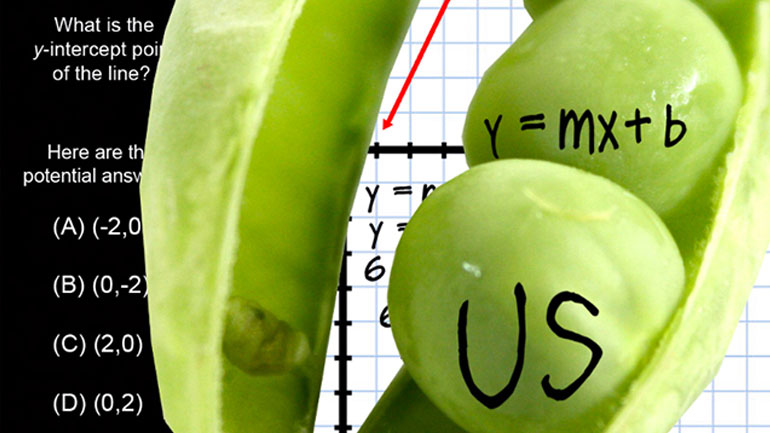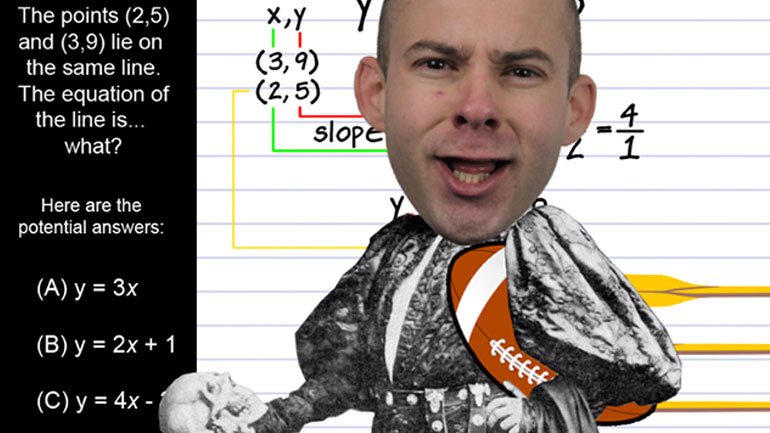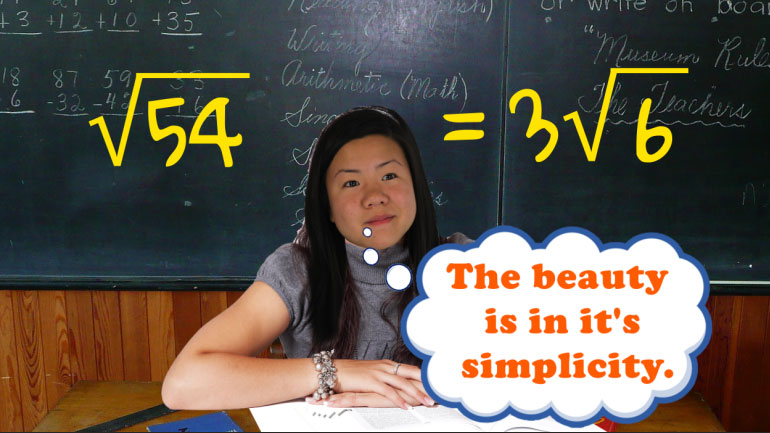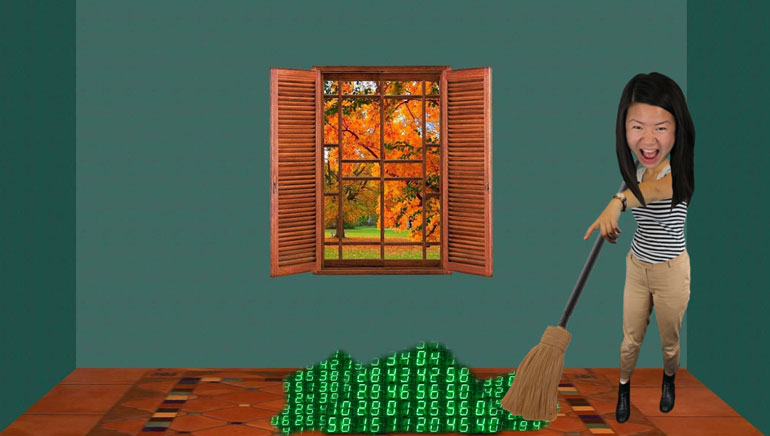ShmoopTube
Where Monty Python meets your 10th grade teacher.
Search Thousands of Shmoop Videos
Systems of Equations Videos 73 videos
How do you solve a system of linear inequalities? Aw, man...and we thought solving a problem like Maria was tough...
Solving Systems of Linear Equations in Three Variables 823 Views
Share It!
Description:
Please note: If starting your own petting zoo, Shmoop recommends you stock it with animals that aren’t quite so likely to bite your hand off. That said, we wish James, Clara, and Riley the best of luck.
Transcript
- 00:05
Solving Systems of Linear Equations in Three Variables, a la Shmoop.
- 00:10
James, Clara, and Riley want to start a petting zoo together...with pandas, chameleons, and
- 00:16
macaws. They each come up with a separate plan for
- 00:19
the number of animals they want to buy... ...but they aren't exactly sure how much each
- 00:24
individual animal costs. James realizes that if he buys 4 pandas, 7
Full Transcript
- 00:30
chameleons, and 10 macaws, it'll cost him $104.
- 00:35
Clara finds that if she buys 2 pandas, one chameleon, and sells 3 macaws, she'll have
- 00:40
paid $13.
- 00:43
Riley figures out that if she buys 5 chameleons and one macaw, she'll have paid $33.
- 00:50
What is the price of each animal? First, let's define our variables. We can
- 00:56
label "p" as the price of one panda, "c" as the price of a chameleon, and "m" as the price
- 01:02
of a macaw. Next, let's write equations for what we know.
- 01:07
Starting with James, we know that if he buys 4 pandas, 7 chameleons, and 10 macaws, it'll
- 01:10
cost him $104.
- 01:10
Because p represents the price of one panda and 4 represents the number of pandas, we
- 01:11
can write the cost of 4 pandas as 4p.
- 01:11
We can write the cost of 7 chameleons as 7c, and 10 macaws as 10m.
- 01:13
We know total cost is 104 dollars, so 4p plus 7c plus 10 m equals 104.
- 01:20
We can write similar equations for Clara and Riley.
- 01:23
For Clara, we have 2p plus c minus 3m equals 13, and 5c plus m equals 33.
- 01:32
To solve this system of linear equations of three variables, we will first use elimination
- 01:39
to reduce the system into two variables.
- 01:43
Let's look at the top two equations first. Since we don't have equations where we can
- 01:47
eliminate a variable by addition or subtraction directly...
- 01:50
...we can multiply one or both of the equations by a constant so that we CAN eliminate one
- 01:57
of the variables by adding or subtracting. We want to eliminate p from the top two equations
- 02:03
first because there is no "p" in the bottom equation.
- 02:16
To do this, we can multiply the second equation by 2 to get 2p times 2 is 4p, plus c times
- 02:27
2 is 2c, minus 3m times 2 is 6m, which equals 13 times 2..which is 26.
- 02:36
Subtracting the first two equations, we get...5c plus 16m equals 78.
- 02:42
Looking at the second and third equations together...
- 02:45
...we can see that we now have two equations with two variables, so we can use elimination
- 02:49
again.
- 02:50
5c and 5c eliminate directly, so we can just subtract the two equations to get 15m equals
- 02:56
45.
- 02:58
Dividing both sides by 15, we see that m equals 3. So the price of one macaw is 3 dollars.
- 03:04
Plugging "m" as 3 back into the last equation, we have that 5c plus 3 equals 33.
- 03:12
Subtract 3 from both sides, to get 5c equals 30.
- 03:15
Divide 5 from both sides, and we get c equals 6.
- 03:18
So... the price of one chameleon is 6 dollars. Finally, to solve for the price of one panda,
- 03:25
we can substitute "m" as 3 and "c" as 6 back into either the first or second equation.
- 03:31
Using the first equation, 4p plus 7 times 6 plus 10 times 3 equals 104.
- 03:38
7 times 6 equals 42 and 10 times 3 equals 30. So 4p plus 42 plus 30 equals 104.
- 03:47
Subtracting 42 and 30 from both sides, 4p equals 32.
- 03:52
Divide both sides by 4... and p equals 8 dollars. Whew! We've found that one panda is 8 dollars,
- 03:59
one chameleon is 6 dollars, and one macaw is 3 dollars.
- 04:02
Pretty reasonable prices for such exotic animals...
- 04:05
...but it probably still won't save James, Clara and Riley enough money to make up for
- 04:06
all the lawsuits.
Related Videos
We don't like knocking people down to size, but we do like simplifying radicals. Join us?
If fleeing criminals always fled the scene of the crime at perfect right angles, it would be much easier to determine their whereabouts. Fortunatel...
Okay, so this probably isn't going to help you master Pokemon Go, but game theory can be applied to all sorts of situations. Even stomping your old...
Today's video is about calculating central tendency. We'll lay out outliers and make means...meaningful.



